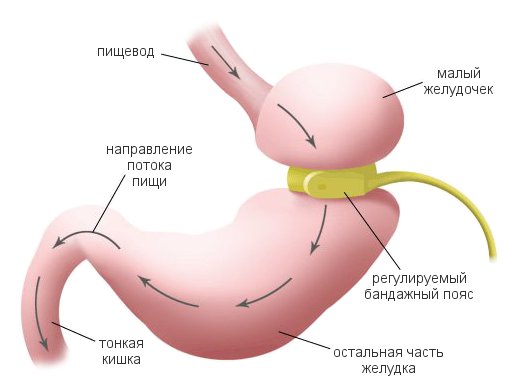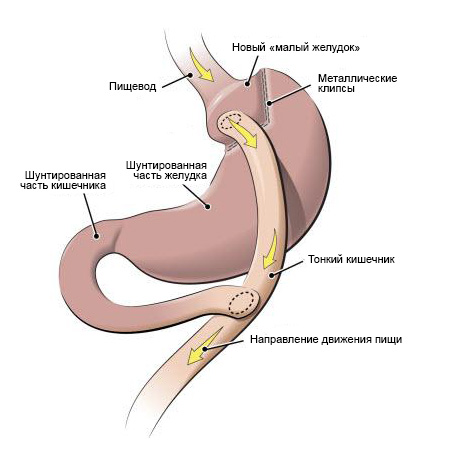Bariatric Surgery

Bariatric surgery, or bariatric (from ancient Greek. Βάρος – weight, severity, and ἰατρεία – treatment) is the section of surgery that deals with the treatment of obesity. Although, in general, the term “bariatrics” can legitimately be used in relation to any ways to reduce excess weight (for example, dietetics, medical methods of treatment), however, historically, when talking about bariatric techniques, above all mean overweight surgery.
Indications for bariatric surgery
Surgical treatment of obesity is applied according to indications developed by the international associations of bariatric surgeons and endocrinologists (IFSO).
1. Body mass index> 35 kg / m2.
2. The presence and progression of concomitant diseases on the background of obesity.
3. Refractoriness to therapeutic treatment methods.
In some cases, the patient’s reasoned wish is considered.
There are several standard bariatric operations:
* Gastric Sleeve
* Gastric banding
* Gastric bypass
Laparoscopic sleeve resection of the stomach.
The resection of the stomach (sleeve, vertical resection of the stomach) has recently become very common among other bariatric operations. This operation is characterized as the most effective and low-traumatic.
The principle of restriction, that is, the narrowing of the upper gastrointestinal tract in order to limit the amount of incoming food, is the basis of the laparoscopic sleeve resection of the stomach. It is performed under general anesthesia and consists in removing about 85% of the stomach, instead of which only a very narrow “sleeve” remains along the lesser curvature, and the body and the bottom, which are to the right of the intersection line, are completely removed. The operation allows you to achieve weight loss of 50-60% of overweight.
The advantages of gastric sleeve resection before gastric banding
In contrast to the bandaging of the stomach, after laparoscopic gastric sleeve resection, no foreign material (silicone) remains in the body.
Weight reduction begins immediately after surgery, ends earlier than after bandaging and doesn’t depend on additional manipulations with the regulated system, but is actually determined by the new anatomy of the stomach.
The effectiveness of laparoscopic sleeve resection of the stomach is higher than banding.
The advantages of longitudinal resection before shunting of the stomach.
Technically, laparoscopic sleeve resection of the stomach is easier than the procedure of gastric bypass, although it isn’t always as effective.
A resection of the stomach avoids some specific complications associated with bypass surgery. Due to the fact that during the longitudinal resection of the stomach, the intestine remains unaffected, the risk of developing protein-deficient states, a lack of iron, calcium and other trace elements, as well as vitamins in the body, virtually disappears.
If necessary, gastric resection can always be supplemented with an intestinal stage, transforming it into gastric or biliopancreatic bypass.
For laparoscopic sleeve resection of the stomach, a special endosurgical technique is used to perform the intersection and subsequent stitching of the resected stomach, as in other modern bariatric interventions, which make it possible to make the procedure minimally traumatic for the patient.
Laparoscopic gastric banding

When bandaging on the upper part of the stomach, a ring (usually silicone) is applied. Gastric banding is the safest and atraumatic surgical intervention for the patient among bariatric operations. However, it is also the most difficult and difficult in terms of the organization of the postoperative period, when it should be strictly followed the recommendations received from the doctor, concerning mainly the diet. Persons who have undergone such an operation should not eat solid and liquid food at the same time. Periodically, the patient will need to visit the doctor to control and regulate the diameter of the cuff. Banding allows you to achieve weight reduction of 50-60% of overweight. тела.
Laparoscopic gastric bypass

During gastric bypass surgery, the stomach is stitched with titanium clips, thus it is divided into two sections: a small one, with a volume of 50 ml, and a large one (the rest of the stomach). The small intestine is sutured to the small stomach in a short way. Thus, a person after this operation can eat very little, moreover, a significant part of the food eaten passes through a short path, thereby reducing the absorption of nutrients. This operation gives an 80% reduction in overweight.
Gastric bypass combines two main mechanisms: malabsorption and reduction of the stomach volume.
(Roux-en-Y method (imposition of Roux gastrojejunostomy)
Now this technique is one of the most popular bariatric interventions. It provides stable and long-term weight loss (60-70%, and according to some data, up to 80% overweight), has a positive effect on life expectancy and comorbidity associated with obesity, and also has a rather low risk of developing postoperative complications. One of the downsides is the difficult postoperative period in which the patient is assigned a lifelong daily taking of nutritional supplements, which include: multivitamins, vitamin D, calcium, iron, vitamin B.
Bariatric operations at the Garvis Clinic are conducted personally by Professor Yakov Bereznitskiy. The clinic is technically has the most modern equipment. Sign up for a consultation, we will establish the indications and select the method of surgical treatment for weight correction you need.
